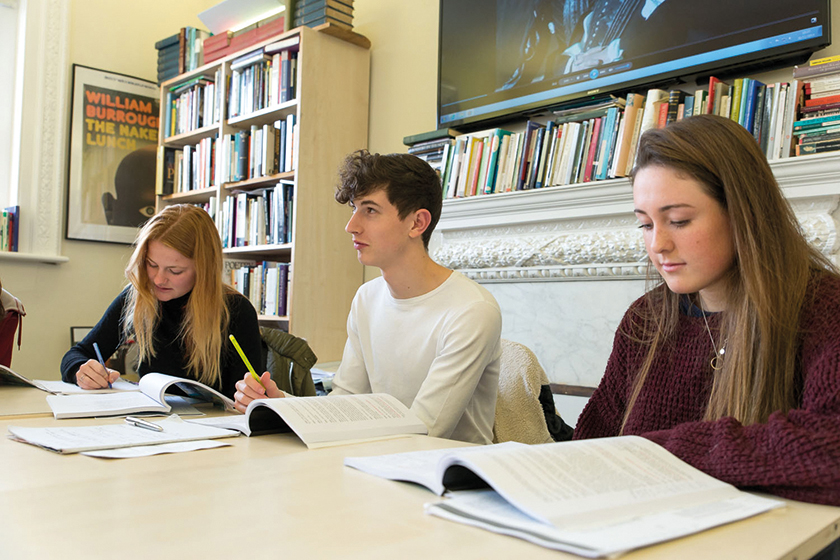Personal Statement: Where to Start and What to Write
By
8 years ago
James Barton, head of admissions at MPW, warns students to steer clear of the clichés

How can you make your personal statement stand out? Here are some top tips on impression those university admissions tutors…

Coco Chanel did a lot for the world of fashion, but can this also be said for the world of education? Annually, around 200 students believe it important that admissions tutors are informed of her philosophy, or the ideas of Julius Ceasar, Milton or Shakespeare and any other number of historical celebrities.
Well, here’s a hint. There is a strong chance that the admissions tutor for the respective course is aware of said great works, military campaign or philosopher, so don’t waste words telling them what they already know. In fact, avoid quotes altogether. The clue is in the title – it is a ‘personal statement’ and all words should be your own. A high impact opening is a must but students don’t have to have the gift of the Bard’s quill – they just need to be true to themselves.
Personal statement clichés
Every year, UCAS publishes the most overused lines in personal statements and they are worth looking at. As someone well versed in applications, it provokes a wry smile to read from someone so young, ‘For as long as I can remember’ but 1,451 students did this year. Phrases like these are overused and should be avoided.
What happens is that people panic. They don’t know how to start. Like the opening sentence of a letter – it is often the hardest line to write, yet the most straightforward. So, how to do it? Bluntly, write it last, or start where you feel most confident.
It is daunting when someone says, ‘sell yourself’, even worse when it is a teacher. I remember thinking I was the dullest person on the planet. My mental block kicked in and I started canvassing for, and trading stories to include in my autobiographical account. Huge mistake, of course, but if you remember that all you are being asked for is an accurate portrayal of yourself, it’s not that bad.
The advice I was given then still applies today – stop, think, make a list of all the things you have done, things you would want someone to know about you and, above all, don’t horse trade with your friends. Theirs will – and should – be different (it is worthwhile remembering we also live in an age of plagiarism software).
Why your personal statement is important
There is no magic wand that will get you into university, only a correct way of filling in the application. People question the importance of personal statements over grades. The truth is, they are important, perhaps not definitively, but in a time where the majority of universities do not interview students, this is their only way of getting to know candidates. So you have to make it count.
These statements should present a reasoned argument as to why you wish to study the course, showing what you have done to research it. The latter point is vital, as through it, you gain that critical understanding as to whether this is the right path.
The key is to extrapolate the skills learnt through education and work experience, discuss what was discovered and how the knowledge you have gained can be applied. If work experience is lacking, then focus on wider reading and examples of life experiences that help prove interest. If reading is mentioned, be prepared to make a pertinent comment on what’s been read, but not a book review.
Closing statements are often as onerous as opening lines. The rule of thumb is – punchy and pithy – one sentence that makes a direct link back to the course and why you want to study it; a reason without arrogance, pretension or overconfidence. Be honest, be true to yourself and remember what your end goal is.
The Five-Paragraph Principle
1. Introduction
Why this course? The best personal statements will show real passion for the subject area. Remember, academics are passionate about their subject. If you are stuck on how to start, leave it until the end. These are stand-alone paragraphs.
2. A-levels
How can you apply what you have learnt on your A-level courses to your work experience? The best personal statements tailor to relevant course details.
3. Work experience/wider reading
What have you done to investigate it? Be creative with how you can interpret work experience. Any work experience is valuable, provided that it can be related to the degree course in question. That said, try and make it relevant from the outset.
4. Extra-curricular
It is important for the admissions tutor to know more about them, even if it does not form the bulk of the personal statement. The important phrase here is why, not what, in terms of things you have done.
5. Closing Statement
No more than one sentence is necessary to tie the piece together and give a compelling reason why the university should offer you a place, without arrogance. Keep it academic and to the point. It is not an essay. Do not write, ‘In conclusion’.
READ MORE: Five Steps to Choosing the Right University



